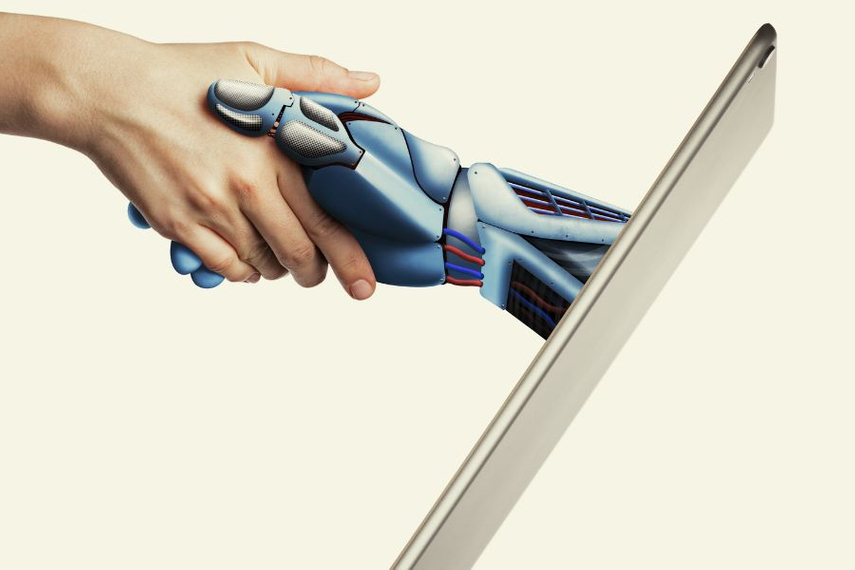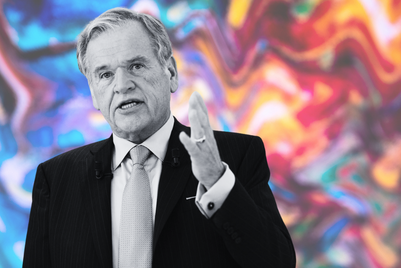
Picture this: You're in a client meeting, nervous about presenting the go-to-market (GTM) strategy for a new B2C product that will hit the market in the next six months. What do you think will be the buzzwords used?
‘Think out-of-the-box.’
Oh yes, some things don’t pass.
‘AI'.
Yes, yes!
‘Influencers’.
Of course!
It was exactly one such meeting recently, whereby the phrase 'AI influencers' came up. In spite of using the most-up-to-date technology jargon prior, most of the people in the room were clueless.
So, what really happens when two of the most hot-topic worlds collide, namely influencer marketing and generative AI? Here are my two cents:
Gen AI influencers
A modelling agency in Barcelona recently introduced Aitana Lopez as an AI influencer who attends events and promotes products, making more than $11,000 a month for them. In India, brands like Realme, Sunfeast, and Wow Cosmetics have partnered with Kyra—India’s first AI influencer. Her Instagram bio reads ‘Dreamchaser, model and influencer’ even though, strictly judging by the quality of the content (as I scrolled through the endless list of product promotions), Kyra is just a tool programmed to make money for its creators. For me, we don’t need anymore such influencers who demand free trips, hotel stays, and money, only to create a couple of Instagram stories and posts as brand associations.
Let’s not forget that two things make you follow an influencer: Either you find their content relatable, or it mesmerises you into doom scrolling. In Kyra's case, the content experience is too artificial to create the 'wow factor'. My Instagram feed has much more wondrous content—from a VFX artist creating a very chilling and life-like Megalodon Shark attack in the sea to QuickStyle dancing on Bollywood songs. Sadly, Kyra doesn’t break the monotony. Plus, I can’t relate to Kyra trying her (shaky) hand on a SunFeast Oats biscuit recipe. All in all, the basics of content creation are quite similar for virtual influencers too, which also includes a healthy mix of branded and non-branded content—and for Kyra— she'll need a personality to supplement her looks or her shareability will certainly drop over time.
So, are the insights better?
Well, nope.
As advertisers, we mostly give clients reach numbers as return-on-investment (ROI) for influencers. Because no matter how interesting a content piece is, brand managers must show numbers to their management for a final hurrah or at least, a pat on the back. In the same meeting (where I was mentally writing this article), a brand manager asked the question: Are the insights better? You would think technology should benefit technology, right? But alas, even that isn’t happening because Instagram still treats them as regular content creators, without any unique tools for Gen AI developed by the app until now.
Let’s talk about deepfakes
Now, this is where things get serious—maybe going into the Black Mirror arena. Hear me out; deepfake technology is here, and it will inevitably cross paths with influencers—including in the selling of rights by influencers for deepfake versions of themselves to brands. A brand could then create many content assets with such rights, without them even leaving the house. That’s millions in the bank with a lot less investment. However, with proper safeguards lest this could lead to deception.
Deepfakes, at least for now, get a bad rep in India because of their use in adult content. There have been multiple instances of such content taking rounds online, damaging the reputation of mainstream actors. As reported by the Hindu Business Line, India does not currently have specific laws that address deepfakes, even though there are legal provisions and government initiatives that could potentially be used to address the issue. The Government has however, issued advisory and mandated social media apps to remove any deepfakes within 24 hours of notice and there have been discussions going on between the Government and these platforms for a few months now.
On the positive side, deepfakes have given India some interesting advertising campaigns from Shah Rukh Khan promoting small businesses to Sunfeast Dark Fantasy biscuits. Zomato has also experimented with this technology. But this isn’t quite balancing the equation.
More than ever, the world requires stronger IT and copyright laws to regulate deepfakes for them to be accepted at such a mass level. While the proposed AI act of the European Union will not bar the use of deepfakes outright, it attempts to regulate them through transparency obligations placed on the creators, who will be obliged to “disclose that the content has been artificially generated or manipulated."
Coming to my take on this, it might just be a good time for ASCI to increase discussions on the impact of deepfakes in advertising and influencer marketing, at least until the legalities are being worked on. Also, collective action to create better awareness and advanced technology solutions is the need of the hour. It's better to be prepared before the Titanic strikes the iceberg, right?
I would like to conclude by saying that we have barely scratched the surface of influencer marketing in India and AI is set to make the content sharper, even more interesting, as it can replace gut feelings with data-led decisions. Gen AI is knocking on doors quickly, and is here to change how we usually do things—and no one is safe, be it advertising or influencer marketing.
Tanishtha Kaura is the associate Client Solutions head for DDB Mudra Group. All views expressed here are her own.



.jpg&h=334&w=500&q=100&v=20250320&c=1)
.jpg&h=334&w=500&q=100&v=20250320&c=1)

.jpg&h=334&w=500&q=100&v=20250320&c=1)


.jpg&h=334&w=500&q=100&v=20250320&c=1)



.jpg&h=268&w=401&q=100&v=20250320&c=1)

.jpg&h=268&w=401&q=100&v=20250320&c=1)

.jpg&h=268&w=401&q=100&v=20250320&c=1)
.jpg&h=268&w=401&q=100&v=20250320&c=1)


